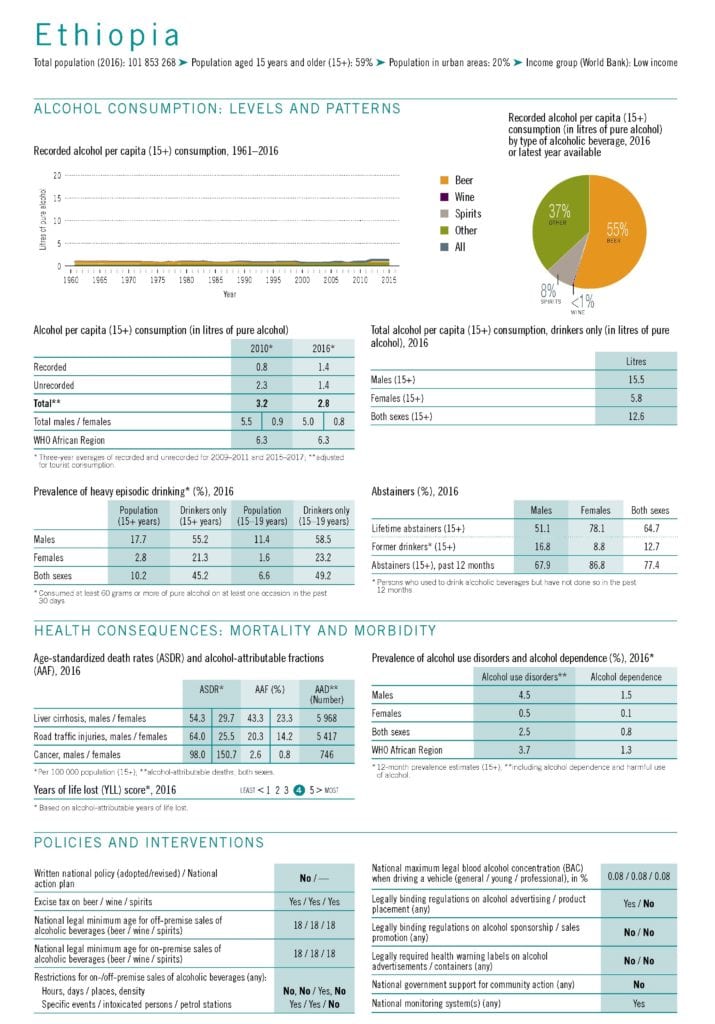Ethiopia: Alcohol Ads Ban Effective In May
A ban on any broadcast media advertisement on alcoholic drinks, from 6:00 AM in the morning to 9:00 PM in the evening, will begin to take effect starting May 29, 2019.
The Ethiopian parliament introduced a bill called the “Food and Medicine Administration Proclamation” in February 2019. This bill restricted smoking in all indoor workplaces, as well as public places and public transportation and introduced higher alcohol taxes, as well as advertising bans on alcohol products.
Core elements of the new alcohol control
Key points of the bill are:
- Ban on alcohol promotion on broadcasting media outlets
- Introduction of legal age for alcohol consumption as 21 years
The first draft of this bill had lighter restriction on broadcast ad ban on alcohol products. The draft only restricted advertising alcohol beverages with over 10% alcohol volume, between 9:00 PM and 6:00 AM. This was amended to ban advertising of all alcoholic beverages between 6:00 AM and 9:00 PM.
This ban was hard won with both the alcohol industry and media stations opposing its implementation in fear of losing profits.
However, the Ethiopian government continues to prioritize public health over industry profits, as provisions relating to labeling of alcohol products will be taking effect 6 months from adoption of the bill.
Alcohol Policy in Ethiopia
Alcohol control policy such as the newly passed bill is much needed in Ethiopia, which does not have a written national policy on alcohol control. The country suffers a high mortality and morbidity rates due to alcohol use. Ethiopia is rated at the higher end for years of life lost due to alcohol.
Alcohol control through taxation, advertising bans and product labeling which will be in effect in the near future will aid in preventing and reducing the harm caused by alcohol in the country. Such policy measures are recommended for effective alcohol control through policy in the WHO ‘SAFER’ package and are included in alcohol policy best buys. The country will benefit further through the formulation of a coherent national alcohol control policy.

